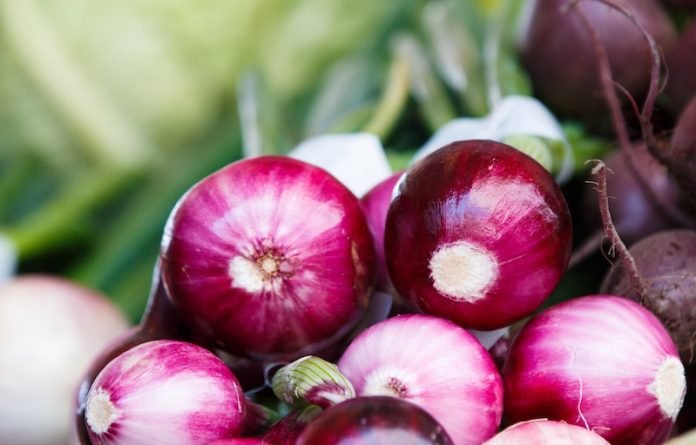
A recent study from the University of Bonn found that extract from red onion skin could help reduce high blood pressure in overweight and obese people.
Quercetin is a plant flavonol from the flavonoid group of polyphenols.
It is found in many fruits, vegetables, leaves, seeds, and grains; capers, red onions, and kale are common foods containing appreciable amounts of it.
It has a bitter flavor and is used as an ingredient in dietary supplements, beverages, and foods.
Previous studies found that quercetin may prevent heart disease due to its anti-hypertensive properties.
In the study, the team examined the effects of quercetin after regular intake on blood pressure (BP) in overweight-to-obese patients with pre-hypertension and stage I high blood pressure.
A total of 70 participants were assigned to receive 162 mg/d quercetin from onion skin extract powder or placebo with 6-week treatment periods.
Before and after the intervention, ambulatory blood pressure (ABP) and office blood pressure were measured.
The team found that in the high blood pressure group, quercetin decreased 24 h systolic BP by -3·6 mmHg when compared with placebo.
In addition, quercetin strongly decreased daytime and night-time systolic BP in people with high blood pressure.
In the total group and also in the subgroup of hypertensives, blood pressure biomarkers, oxidation, inflammation, lipid, and glucose metabolism were not affected by quercetin.
The team concludes that supplementation with 162 mg/day of quercetin from onion skin extract lowers blood pressure.
These suggest a heart-protective effect of quercetin.
If you care about high blood pressure, please read studies that drinking tea could help lower blood pressure, and herbal supplements could help reduce high blood pressure
For more information about blood pressure, please see recent studies about added sugar in your diet linked to higher blood pressure, and results showing vitamin D could improve blood pressure in people with diabetes.
The research was published in the British Journal of Nutrition and conducted by Verena Brüll et al.
Copyright © 2022 Knowridge Science Report. All rights reserved.



